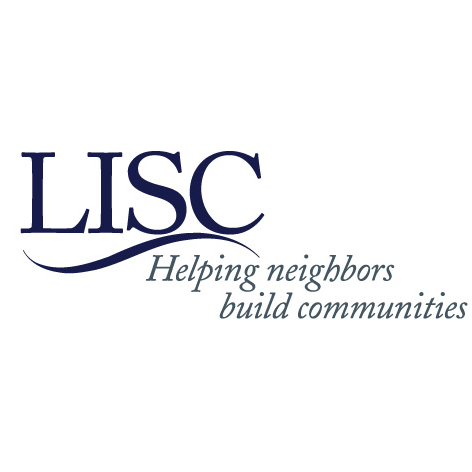Local Initiative Support Coalition (LISC) is the largest community development financial institution in the country. Since the late 70’s, LISC has invested in places and housing, real estate, enterprises and small businesses across 46 markets around the country, including the Greater Boston area.
Our office recently connected with LISC Boston’s Program Officer, Tia Vice, to learn more about this incredible nonprofit and how current students and alumni may get involved.
How would you describe LISC Boston to someone unfamiliar with the organization?
Tia: “We do work in the area of changing systems based on what we learn in the different ways that we work with people. How we do that is by utilizing investments that are made in LISC as a nonprofit financial institution. That usually comes from banks’ community reinvestment dollars that they’re required to invest in low to moderate income communities. It also comes in funds from corporations and a few large individual donors, but for the most part from banks, nonprofit foundations, and others that are looking to invest in the community.
We then leverage those funds with other dollars that we have to pass through to community groups as low interest loans for affordable housing developers, or grants for small businesses or community-based organizations that are looking to build something interesting in one of those areas that I mentioned.”
How would you describe the work culture at LISC?
Tia: “It’s fast-paced, which I think all of our workplaces are now, but it’s a friendly working environment where you’re constantly looking at what’s happening in our local area and in our market. We work Massachusetts-wide, but for a long time worked in the Greater Boston area for the most part. We’ve got a number of really cool programs and initiatives that we invest in and that we’re working in or even facilitating in some cases.
We also have programs and initiatives that our national and corporate organization is launching all of the time, some of which we deploy, some of which we don’t.
I’d also say that it’s an interesting perspective because I feel like a lot of what we do is work that’s in the background. Like finance, for example, there are some folks on our team who are in the weeds of all kinds of financial instruments and funds, which is really cool to know because, on the flip side, what that looks like is a great new building or housing that we see.”
What are some of the opportunities students and recent grads can get involved with?
Tia: “There are opportunities to work throughout a semester period. I’d say with COVID, because of the pace we’ve been working at, we’ve brought on more temporary employees to help with particular assignments or projects because we’ve had programs that we’ve had to launch and stand up for that.
There are things that we’ve learned that we would love to have people help us highlight through stories. Someone who is a student or alumni communications person could really help in that area.
Social media engagement is another area we could use support. We definitely need help building up our digital tools. We use a lot of them, but we want to really measure what’s most effective and create plans for better engagement with our audiences…
We’re a small team. Even though we’ve got this powerful national infrastructure behind us where we’re still figuring out, ‘Okay, how do we tell our story and tell the story of our partners.’ How we do that often ends up taking the form of occasionally throwing a bunch of things together and pushing it out to our audience.”
How has your work been shaped by COVID-19?
Tia: “We really saw the urgency in the work we do. I think in some ways that some of our small business programs could help entrepreneurs and, in particular, minority-owned businesses, women-owned businesses, and in other groups. We saw how we could help them stay afloat in this time because they really are the lifeblood of our communities and local economies. There were programs in that space that we were either building up or developing that really just kind of ended up pivoting completely and put them out on a larger scale to help more people.
It was both support in terms of programmatic support as we helped people think through how they would survive and get through this. You know, what’s the plan or how do you iterate in a moment like this when you’re really thinking about survival.”
What are some of the skills or skill sets you look for in applicants?
Tia: “I’d say digital communications skills and knowledge of some of the newer digital communications, like tools themselves could really be helpful.
We’ve got things in place that our national structure has said ‘Here, this is what we use and you can utilize it’. That doesn’t always work for us, locally. We find that we’re trying to push them to help us a little more but also we know everything is online right now. Good digital communication strategies and skills are critical. I want to stress that point.
I mentioned social media as something we would like to do more, especially in spaces like LinkedIn. We’re figuring out how we might better utilize LinkedIn as a platform, since we’re working some more in the small business space.
Project Management is important, of course, especially as we talk about creating reports or helping us build out a section of our communications work that just doesn’t exist yet. One thing I haven’t mentioned is public relations. There’s so much that we’re learning and there are so many stories that we are lifting up and that we put out there. But having someone that could really focus or help us focus a little more on getting placement in papers and getting some more hits in the press would be great.”
Do you have any advice for young professional getting their start?
Tia: “I’d say explore your interests and what excites you most, especially as you’re just getting your start. One thing I really appreciated about the times where I was transitioning from, say, academics to being in the professional world was that it’s like, ‘Okay, this is an opportunity for me to explore something that I’m interested in. To learn from people that I want to learn from in the workplace.’ That’s, I think, a really big thing.
Who’s doing work that excites you and who would you like to learn from? Finding ways to get close to that work and get close to those people who are doing the things that interest you will take you all kinds of places.
Expertise is also very important. I’m doing communications work and I’m building my expertise. Finding a balance between doing a deep dive and getting expertise in something you know you can utilize is awesome.”



